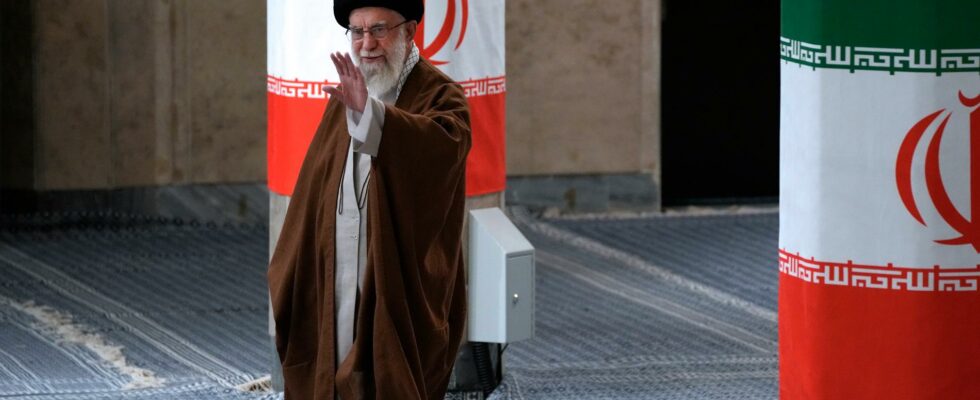Tina Magnergård Bjers/TT
unsaveSave
expand-left
full screen
chevron-rightnext
Iran’s Supreme Leader Ayatollah Ali Khamenei. Archive image.
1 / 2Photo: Vahid Salemi/AP/TT
Ebrahim Raisi, who died in this weekend’s helicopter crash, was not only Iran’s president. He was also seen as a likely successor to the country’s aging supreme leader, Ayatollah Ali Khamenei.
– This opens up a power struggle, says Mohammad Fazlhashemi, professor and expert on political Islam.
The position is unique – both in Tehran and the world. In 1989, Ayatollah Ali Khamenei took over from revolutionary leader Ruhollah Khomeini and became Iran’s second supreme leader. For almost 35 years, he has had the final say in all major decisions and appointments – while also being commander-in-chief.
Future battle?
But the 85-year-old ayatollah and former president has also battled prostate cancer and is now widely described as frail. Speculation about who will one day take over from him runs hot.
The names mainly mentioned are the now dead Raisi and Ali Khamenei’s own son Mojtaba Khamenei. The latter has two factors against him: on the one hand he is not considered to be of sufficiently high religious dignity, and on the other hand he is his father’s son. Criticism of the monarchy’s inherited order of succession was an important part of the 1979 revolution, when the shah was overthrown.
– The field is now quite open, states Fazlhashemi, who is professor of Islamic theology and philosophy at Uppsala University.
– People within, for example, the Revolutionary Guard can highlight their own candidates. There may be a fight over the future successor.
Constant new elections
Iran’s supreme leader is formally appointed by the so-called Council of Experts, which consists of about 80 scribes.
This soon after the dramatic helicopter crash, new candidate names have not started to flourish, Fazlhashemi’s tip is to keep an eye on the imminent new election of president, which must take place within 50 days of Raisi’s death.
– It will be exciting to see who is running and how the Guardian Council, which approves the candidates, acts. Do you want someone who can become a top leader in the future?
Tired of dress codes
On a deeper level, the leadership election is about the direction the Islamic Republic is developing in. As president, Ebrahim Raisi was part of a harsh state government that has become increasingly conservative in recent years, according to Fazhashemi. But a majority of young Iranians want reforms and pragmatic leaders.
– Large groups among those born in 1990 and later lack confidence in the theocratic system, where religion and state are in practice joined together. They are tired of restrictions on privacy, of dress codes and of corruption.
Many of them participated in the protests that shook Iran in 2022 after the death of Mahsa Zhina Amini in the custody of the morality police. The 22-year-old was arrested for not wearing a veil.
– A recent leaked survey shows that only 1.9 percent of Iranians would intervene personally if they saw a woman without a veil. 1.6 percent state that they would contact the authorities, says Fazlhashemi.
FAKTAIR’s top leader
Power in Iran emanates from the supreme leader, who is seen as a deputy to the twelfth imam who, according to Shiite Islam, disappeared in the 8th century and is expected to return one day.
The supreme leader is elected by the so-called expert council, which can also formally depose him. The expert council consists of roughly 80 scribes who are appointed in general elections every eight years. However, all candidates must be approved by the so-called Guardian Council, of which six out of twelve members are appointed by the supreme leader himself. The rest of the Guardian Council is appointed by Iran’s Supreme Prosecutor (who is chosen by the Supreme Leader) and then approved by the Parliament. But all candidates for parliament and the presidency must be approved by the Guardian Council.
The supreme leader is the commander-in-chief and appoints all senior positions in the judiciary, state media and the so-called mediation council, which is supposed to mediate in disputes between the parliament and the guardian council. He also has veto power over all important decisions made in the country.
The relationship between the top leader and the president can be compared to the former being the chairman of the board and the president being the CEO. Even presidential candidates must be approved by the Guardian Council before an election.
The system is unique in the world, and stands out especially within Shiite Islam, where the historical view has been that religion and politics should be kept separate.
Source: UI, Uppsala University
Read more
